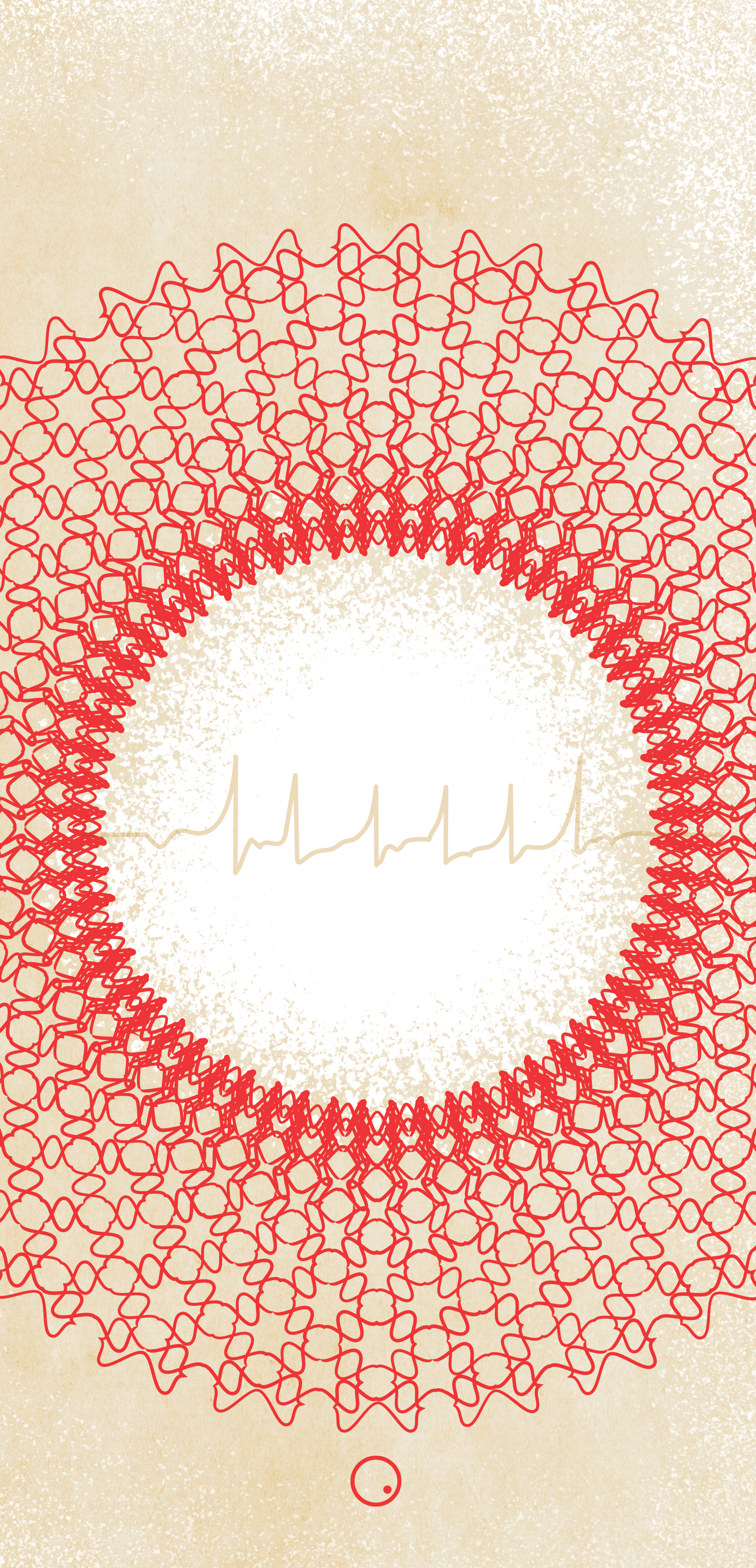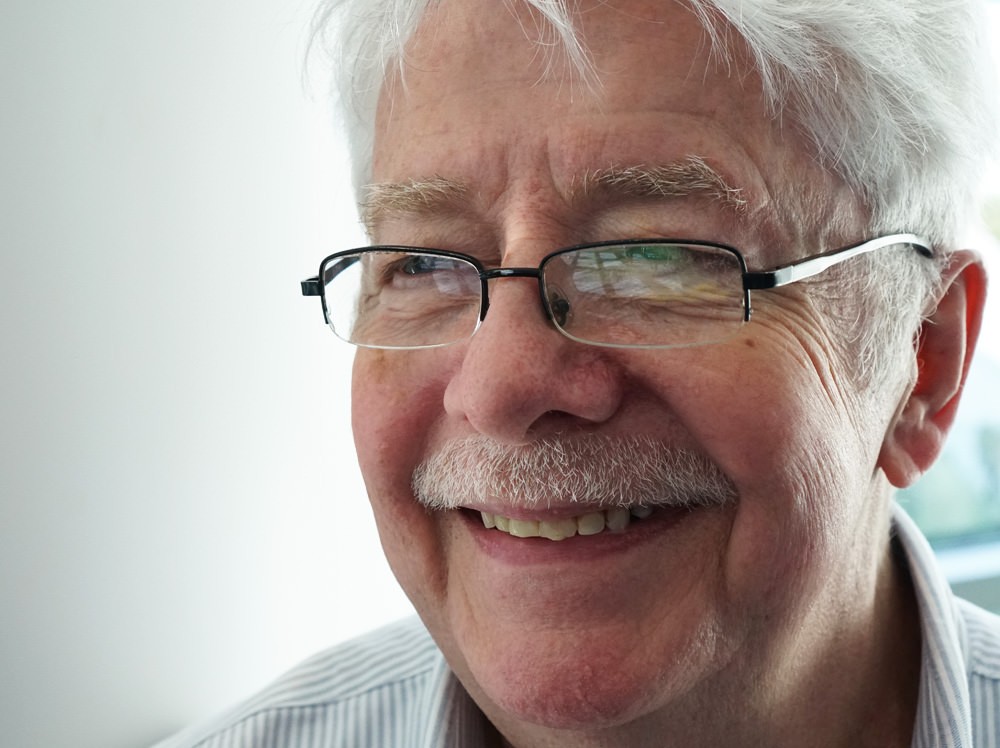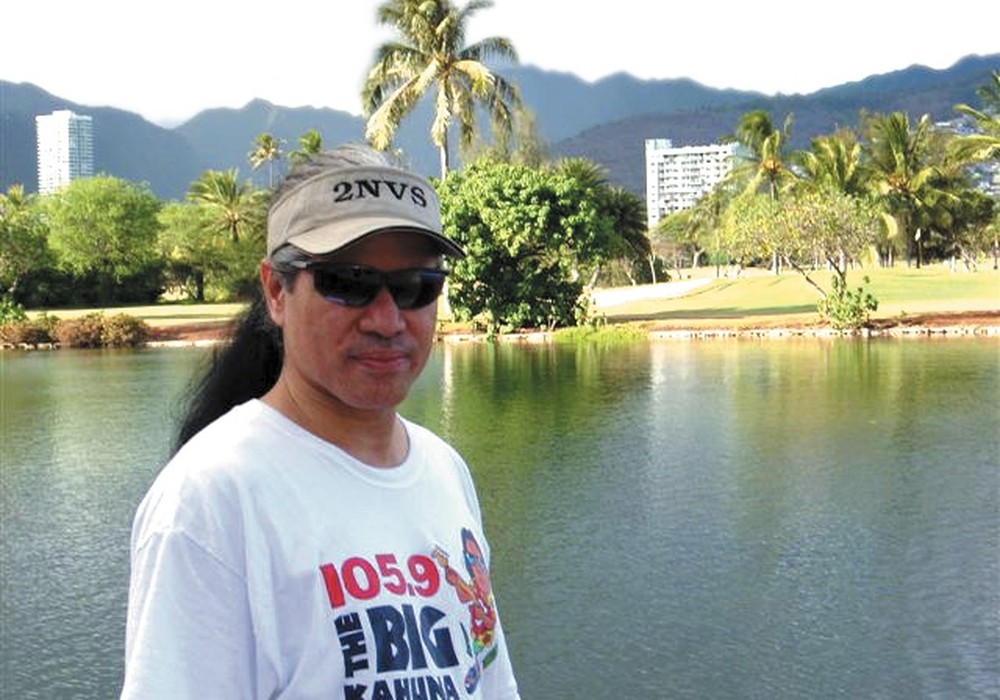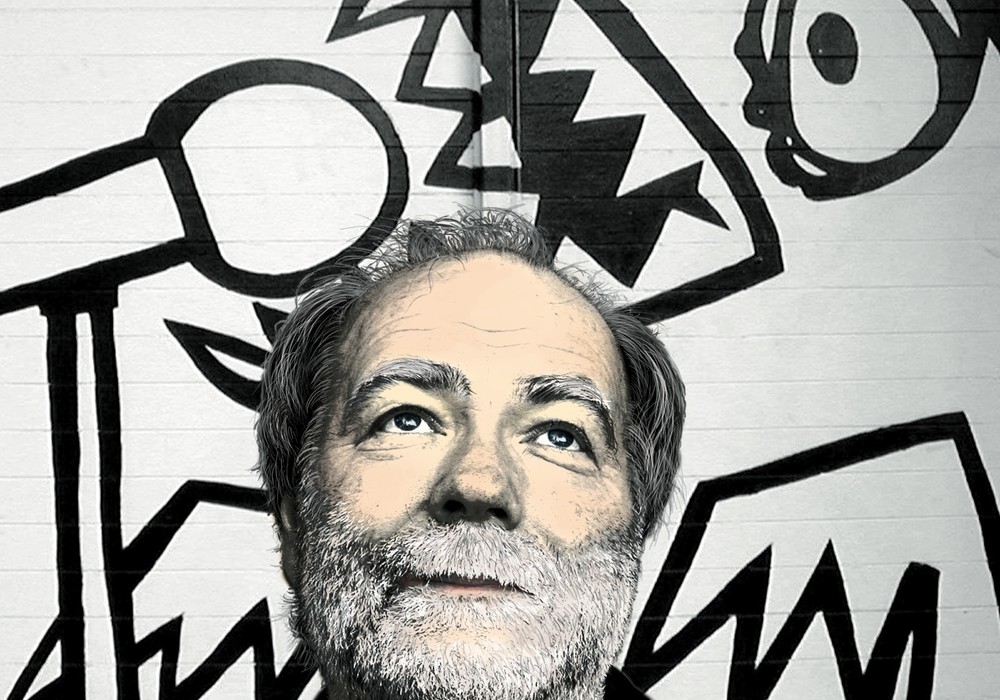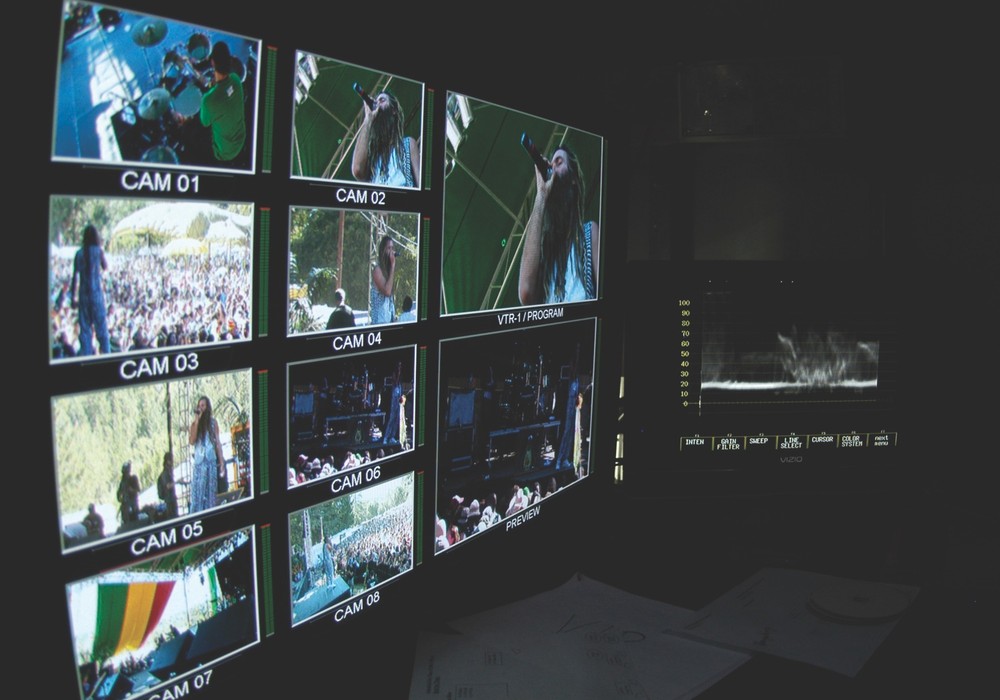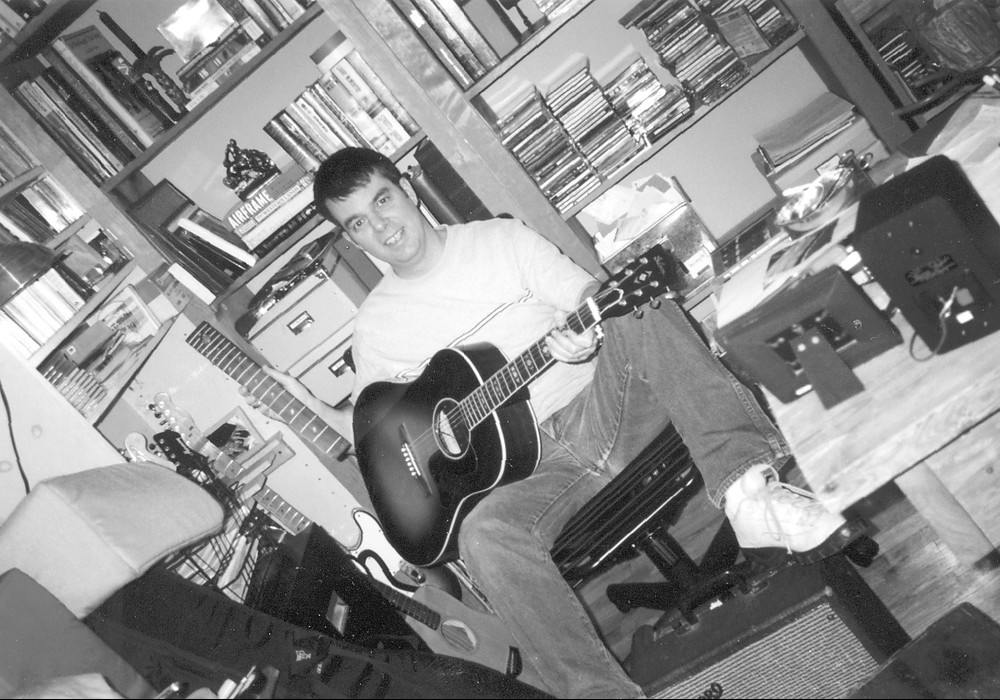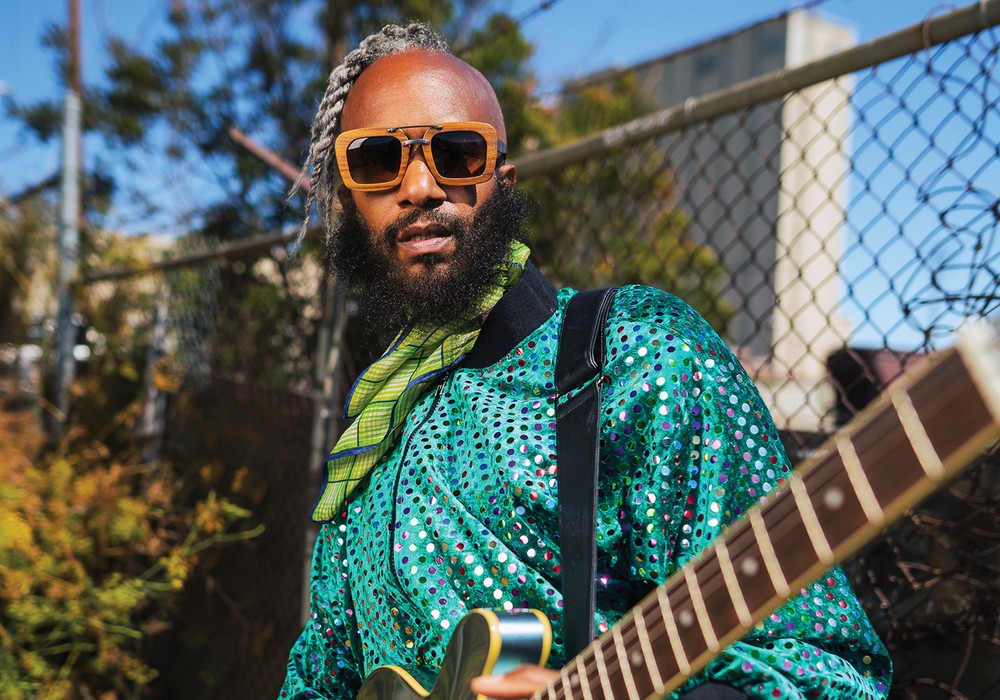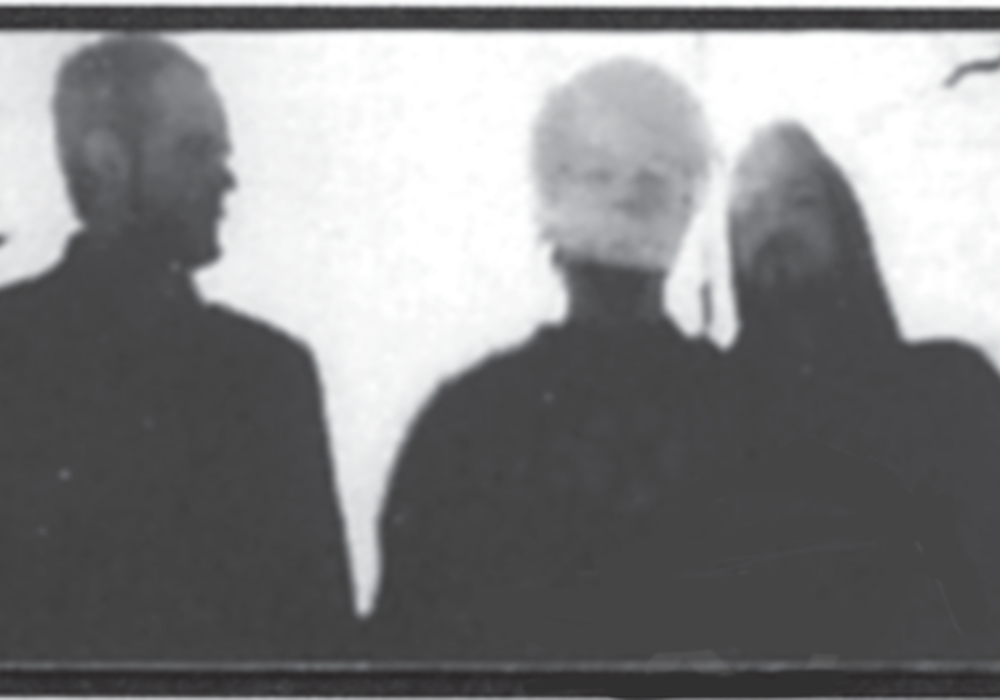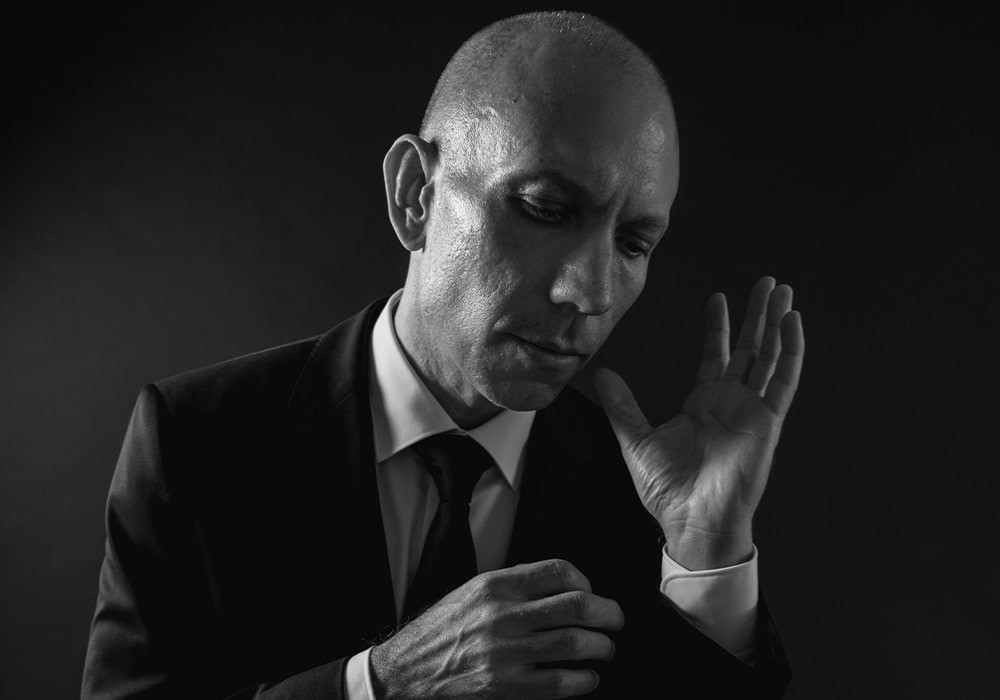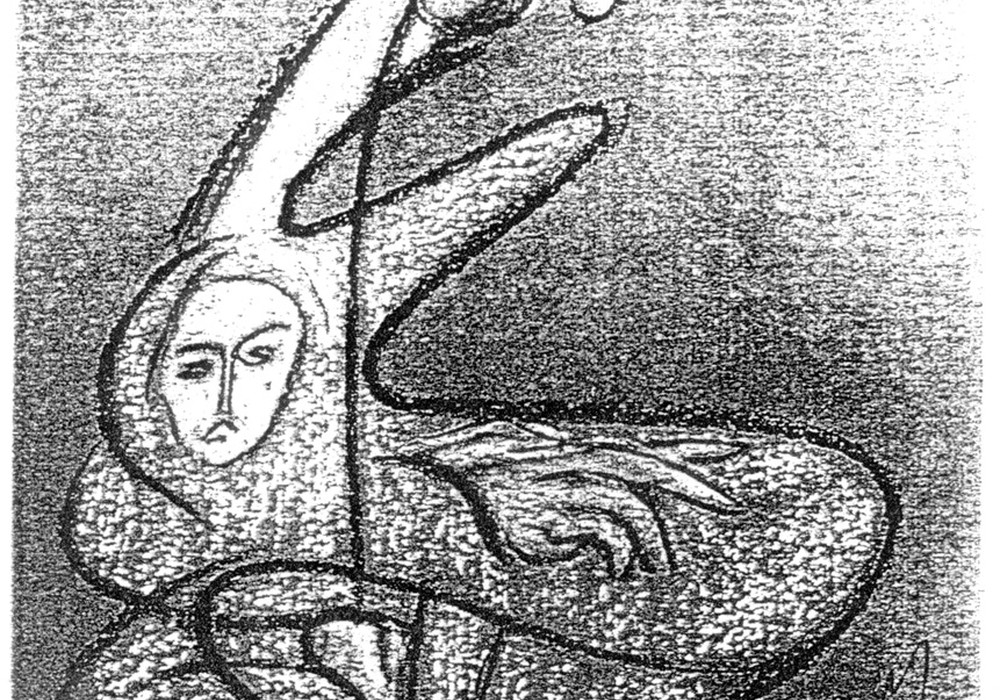Ken Scott is an undisputed legend. We interviewed him way back in Tape Op issue #52. His work with The Beatles, Elton John, David Bowie, George Harrison, Supertramp, and countless others, has him firmly planted in the middle of some of music’s greatest albums. We caught up with Ken at this year’s NAMM show in Los Angeles and chatted with him about his amazing career.
What have you been up to?
I’m now a visiting professor at at Leeds Beckett University in Yorkshire. I never feel I’m utilized properly, because I go in there and I will lecture to students. The best way for people to learn from me is to watch me work. It’s always the better way. We do things so instinctually that you can never really talk about, because you don’t even realize you do them yourself.
Right, always. You know the story and every engineer you’ve ever worked with as well. They can have the same gear as you and set it up slightly different, and it sounds totally different. It’s subtle.
Oh, absolutely.
I know that feeling. Excellent. What studios were you working out of in the day that did have Sound Techniques consoles?
Trident.
Trident had them initially before they built their own?
Yes.
Oh, that’s fascinating.
Even after building the A-Range, that was only in the studio. The mix room still had the original Sound Techniques board until I think about ‘77 or ‘78. So everything that was recorded was still being mixed through a Sound Techniques board. What’s gone through that original board is just unbelievable. It was the “Hey Jude” board, then used for recording three and a half tracks from The White Album. We did all of the overdubs and mixed All Things Must Pass. All the early Bowie stuff. Elton John. The Stones used it. In fact, the Stones went out and bought one, and then they eventually donated that to a studio in Kingston, Jamaica.
Oh wow, right.
The lineage of the Sound Techniques boards is amazing. Most people have never heard of them.
Right. I was talking to the new owner today. I was like, I know what this is. I know what this means. A lot of records.
Absolutely. When I first started to talk to Danny about it, he’s got the list, even now I think it’s a partial list, of the records that have been done through Sound Techniques boards across the world. I had no idea! I knew the Trident ones and the Sound Techniques studio recordings.
John Wood.
Yeah, and the first two Pink Floyd.
Oh yeah, with Joe Boyd producing.
Yeah.
Beautiful recordings. I want to try these new ones out, because I never got to touch one of these consoles, and so many of the records that influenced my whole career were done on them. I’m really fascinated. It feels like they extract quite a bit of detail to me. There’s something in the circuitry, Geoff Frost’s vision for that.
It’s amazing.
So what have you been up to lately? You’re living in the UK now?
Yorkshire. North Yorkshire. Near Leeds. Well, teaching and doing masterclasses basically. I did a project I guess about a year ago now we completed it. David Rawlings’ album. Poor David’s Almanack is what it’s called. Tomorrow we’ll find out if he’s got a Grammy for one of his songs on it. We’re hoping.
Oh wow.
We’re hoping. That was great. We did it at Woodland Studio, which is Dave and Gillian’s studio in Nashville. All analog. It was amazing. They’re such, such great people. They really are. Sweethearts.
Do you find that if you’re drawn to a project, it’s partly utilizing your classic skills of tracking acoustic musicians together and things like that?
Sure. My discography is so sort of left-to-right-field basically. I’ve done so many different types of things. For me, I always do everything basically the same. It’s the musicians and the music that changes. It’s not me that changes.
Right.
That’s something that I try and put across to students. We’re just in the control room to add that little sparkle. Everything should happen in the studio. The performance. The song. The sound. If you have a shitty drum kit, you’re never going to get a great sound. You start off from the right place, with a good sound in the studio, and then we in the control room have to do very little.
Yeah, it makes sense.
Look, when I started 4-track with The Beatles, the amount of EQ and effects we had were miniscule. You can’t do much. You have to get it right in the studio. I learned that way, and it still goes for me today. You get it in the studio first.
Yeah. It’s an ideal way to work. How do you feel when you work on sessions where it’s Pro Tools and plug-ins?
I don’t. I do Pro Tools. Obviously I use Pro Tools. I use plug-ins, but very limited. I prefer hardware. If I want to attempt it, I will sometimes use a Fairchild plug-in; the 660. The plug-ins are nothing like the real thing, but it’s closer than anything else. So I will sometimes do that. But I don’t use very much gear. That was one of the funny things. The first thing we put up on the desk downstairs earlier was a track off of Billy Cobham’s Spectrum album. I hadn’t put up the multitrack in god knows how long. What was amazing was all the faders were at zero. There was no EQ or anything. Just hit the button to start playing it, and there was the mix. If you get it right in the beginning, you don’t have to do too much at the end.
Right. I just finished an album that was all 24-track reel-to-reel, and I was riding faders as we were tracking, because I was like, I don’t want to deal with this later!
Absolutely. I hear of mixing engineers who get Pro Tools files to mix, and there are like 15 different guitar solos because nobody’s made a decision. It’s ridiculous!
Dave Pensado told me yesterday or the day before about 350 track sessions for mixing. He has to have assistants just to start sorting that out for him.
That’s...it’s pathetic! It’s pathetic.
I loved when you put up “Rocket Man” down there and you were getting the instruments ready. You pushed up one fader, and we heard a doubled vocal.
In all honesty no, that was on two tracks.
Oh, I thought it was on one.
Because we’re limited down there as to what it is, I’ve got them coming out the same channel. But, if I were to bring up the George Harrison track I have down there, that is the double track on one track.
Bounced together?
Yes. The way we got all the backing vocals for All Things Must Pass, it was all George. We’d record one part on three tracks. On the fourth track, he’d be singing live, and I’d be bouncing the three to one. Then we’d do the same again with the second part. Quite often, I’d be mixing the track with the first four vocals onto the next part with the three as he’s doing it live. We just kept on going on like that. It was great! We got it mixed as we were going along. Then you don’t have to do it. Absolutely.
Oh yeah. Is it a trip to come back, you mentioned the Billy Cobham session, to come back to something you tracked initially, do you feel sometimes back in the headspace or the feelings of the time?
Oh, absolutely. Sometimes even more so. At one point, I can’t remember which track it was. I know it wasn’t “Life on Mars”, because I’ve worked on that lately. I think it was one of the Elton tracks I brought up. As I was putting it together, the hair on the back of my neck was standing up. This is fucking great!
Some good performances. It’s amazing.
Those were the good old times. Look, I’m 70 now. I know that every 70-year-old is supposed to say the good old times. "I walked through seven foot snow with no shoes on." No, it wasn’t like that. But it was the golden age of recording. Absolutely. I hit that timing perfectly.
Obviously. The fact that we still want to talk about it. When you’re in the moment making records, sometimes it’s very temporal. Maybe nobody’s going to care about this ever in a year, if it’s a pop hit or something.
That’s what we always felt. Because of the contractual obligations the artist was under at that point, of one album every six months, our feeling at the time was that when the next album comes out in six months time, if people are still talking about that first one, then we’ve done our job. It’s lasted for six months! We never realized 40 or 50 bloody years. It’s ridiculous. And it’s a shame, because we should be talking about today’s music.
Have you heard anything recently over the last five years that you are really enamored with?
Well, David Rawlings and Gillian Welch. That’s easy.
Yeah. I think the thing you sometimes see with that too is like, this is music that very much feels performed and draws you in.
Yeah. When I first started to work with David and Gillian, I loved it. Not my wife’s type of music in any way, shape, or form. They were going to play at the Ryman Auditorium in Nashville, so of course I had to go along. I said to my wife, “You have to come with me. Just try not to fall asleep within the first five minutes. Then you can.” The way it turned out, she was not only awake the entire time, but as we were walking out, she said, “That’s the best show I have ever been to.” They have this ability to pull people in. We did something in Atlanta at the British Consulate House. It was for KEF speakers. I got them involved. It was this very, very hip audience. Small group of people. They were all ultra-hip. Atlanta hip. These two walk out, David and Gillian with their cowboy hats on, cowboy boots, and these people were just watching like, "What the hell is all this?" They start the first number, and people are just, "What the hell is this?" Second number, people are, "Hey, this isn’t bad! This is really good." By the third number, they were all clapping along. David and Gillian have this amazing ability to pull people in. It’s because it’s real. It’s real. It’s what we’re lacking today.
When you’re teaching nowadays, you mentioned wanting to have the students watch you. If you’re not doing that how do you teach?
It’s just tell them what I do as best as I can. What I know I do. It’s those things where I don’t realize what I’m doing that I can’t put across in a lecture sort of way. But because I’ve got multitracks of some of the stuff I’ve done, I can pull out tracks and say, "Look, this is what I did here kind of thing, and why we did this here". I can go a little bit further than quite a few people. But still the best way to utilize me is to watch me work.
Exactly, put you on the floor, set some things up. Get some levels.
Yeah. And I do that at a lot of places as well. Universities. I do a week’s masterclass in Toulouse every year in November. It’s great.
One thing that’s really hard to teach is production. Being on the floor, making a call. Talking about arrangement, talking about performance.
Absolutely.
What do you feel are good ways to get those sorts of things across to people who are learning?
Well, with regards to performance, I play the end of “Five Years”, the opening track on Ziggy. David at the end of that was balling his eyes out, tears pouring down his face. It’s that typical thing when you’re doing a mix. You can’t get every little nuance across. Things get lost. You can hear a great performance from him on the final mix, but you don’t get that he was balling his eyes out at the end. So what I do is I play, and I do this in all my talks, I play the end of “Five Years”. It starts off the actual record, and then I fade out everything but the acoustic guitar and David’s vocal. People will hear him. I’ve had members of the audience in tears. It’s so moving, and it would get rejected today. Record companies would throw it out, because it’s not totally in tune. Boy, does it feel great.
How do you have access to some of the multitracks at this point?
Well, with Elton, I asked for them, and he said, "Give him whatever he wants." So I’ve got multitracks of everything I did with him. Madman [Across the Water], Honky Château, and Don't Shoot Me I'm Only the Piano Player. Olivia Harrison gave me a couple of George’s. I have to be careful, because they’re all scared of bootlegs and people sampling and things like that. But I’m very careful with them. I’ve been using them for years now, and no one’s ever gotten anything from them.
I want to hear the raw tracks of “Life on Mars”. That’s one of my favorite songs in the world.
You missed it. I did that earlier.
I saw the track sheet on the console. Damn it!
Did you hear the new mix?
No.
I did a new mix which was just the piano, orchestra, and David. It was really good.
Wow. I saw Rick Wakeman was going around and playing a few times with people after David passed. It’s such beautiful piano work.
He said it’s the best piano playing he’s ever played. Yeah, it was amazing.
He was practically a kid then.
We all were! Come on.
Yeah, it’s quite fascinating.
That period in England, the talent that came out from musicians, vocalists, engineers, producers, it was just phenomenal.
You were at a lucky time.
Yes.
To get thrown into The White Album from the get-go is ridiculous, as you well know.
I do!
Do you know the story? Basically Geoff Emerick was working on it.
Well, it started on Magical Mystery Tour. He walked out on that once. I was just thrown in. The first time I ever sat behind a mixing console was to record “Your Mother Should Know”, and I had absolutely no idea what I was doing. None whatsoever. I’d watched people push the faders up and pull them down and turn the knobs, but what that actually really did, I had no idea. It was learning by fire. Unbelievable. That’s been my life. It’s been so ridiculous. The first thing I’m ever an assistant engineer on, side two of A Hard Day’s Night. First thing I ever engineered, “Your Mother Should Know”. The Beatles. First thing I ever produce, Hunky Dory. I only ever did one ad, and that ad was “I’d Like to Buy the World a Coke”.
Oh my god.
It got a Clio [award] for it and the whole thing. That was the only ad I ever had to do.
That got turned into a big single too after that.
Yeah, they took the track we did, edited it, and then re-did the vocals without Coca-Cola.
That is so bizarre. Man. That’s some lucky breaks.
Someone was looking after me from up there I think.
GS: It’s interesting, because there are people who have a similar sort of story and path, like, "Oh, I was there at the right time", but it’s really about the people in the room. It’s not just if you can turn the knob right. It’s that collection of people in the room who end up collectively making that music together. People want those sort of people around.
Yeah. The whole thing I said I didn’t know what I was doing with “Your Mother Should Know”, because I’d worked with The Beatles from side two of A Hard Day’s Night through Rubber Soul as an assistant, I think there was enough of a relationship there that they were willing to trust me when I completely messed up. "He’ll get it." It was only a few days later I did my first ever orchestral session, which was “I am The Walrus”. Unbelievable! But there have been so many strange things. When I moved to Los Angeles, we were staying in a hotel looking for a place to rent. We found a place to rent. I was mixing something at A&M at the time. I dropped my family off at the house, because they were going to turn on the gas and electric, that kind of thing. I come back to pick them up after I’ve finished at the studio, and there’s no one there. I was sitting out in the car thinking, "Where the hell are they? What’s going on?" This was before cell phones. I was getting more and more pissed. Suddenly there’s a knock on the car door window. It was my eldest daughter. It wound up that she was with another girl. She said, “Daddy, do you know someone called Frank Zappa?” I said, “Yes.” Well, he lives over there, and that’s where we’ve been all afternoon. This is Moon. "Oh, hi Moon!" Of all the places in L.A., I get the place immediately opposite Frank.
Oh my god.
That led to Missing Persons, because Frank thought I might be interested in it. He let us use his studio to get the studio working properly before he came back for us to do our demos.
Unbelievable.
I know, it is! But I do have something that no one else has and I don’t think they ever will. Whenever there are the best of, the best albums of the last 50 years or that kind of thing, I’m lucky enough to get 2 or 3 in there. Other people get the same. But one thing I have that no one else does. A couple of years ago, Q Magazine did the “Worst Of”, and I got number one on that with a Duran album.
What record?
The one where they did all the covers. The Thank You album.
Oh god. I had to review it!
Did you?
I didn’t give it a good review. Not your fault.
I know! It could have been really good. It was nothing like Duran Duran. I was bringing rough mixes home and playing it with people, and they said, "Who the hell is that?" Then management and the record company got nervous, because it wasn’t like Duran Duran. So I got booted off, and someone else came in and tried to make it more like Duran Duran. You can’t change course halfway through.
Yeah. That’s probably the death of any record. You can’t make it into something it’s not from the beginning.
It’s that making decisions thing. You know what something’s supposed to sound like right from the get-go, and you follow it on through. That’s what makes it good.
One of my favorite things that you did was Crime of the Century, Supertramp. I’m not even a big Supertramp fan in a certain way, but that record is so beautiful and intense and lush and dynamic.
As an album, it works perfectly.
It really does. I feel the record has a lot of dynamic range. What were some of the things you had to do to overcome the limitations of tape and hiss?
Nothing! I just did what I always do.
That’s too easy an answer!
That’s it. Tape hiss isn’t that bad. We were using Dolbys, so that got rid of some of it.
That answers part of my question.
When I started to work with David as a producer, I was used to the whole performance thing, where there’s the producer, the engineer, the assistant engineer, and maybe a couple of musicians. You’re all playing the mix. You’re making the changes all at the same time, and you go through it. When I started to work with David, he never came to any of the mixing sessions. It was just me. How could I make all of the changes that I wanted to make within the mix when it’s just me? So I started to do everything in sections. I would do the intro, get that right, and put it to one side. Do the first verse. Get that the way I wanted it, edit it onto the intro, and gradually go through. On Supertramp on Crime, “Bloody Well Right” starts off with electric piano and band. Continues with just the electric piano, then the band comes in again. I had to do all of those in different sections to get it right. Band, then suddenly faded out. Then when they come in again, you set it all up. That’s where you start from, and you edit it to the other one.
So your mastered mix would have a handful of edits at certain crucial points?
Absolutely. But you pull them all out, and that’s how you get rid of the tape noise. You don’t leave them in all the time. You don’t need it in all the time.
Mutes. I love that. What kind of reverbs were you using on mixing that too?
EMT Plate.
Chambers?
No. Occasionally a Cooper Time Cube. And it was only one. Only one plate.
Cooper Time Cube is bizarre. Such an interesting sound.
I know. That’s why I said it was only ever now and again.
Listen to the Ken Scott Podcast
